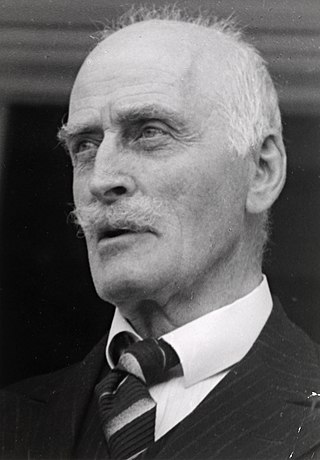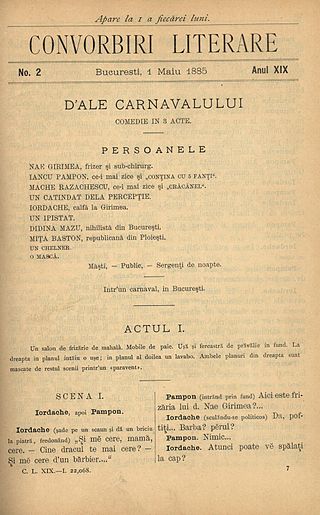
Knut Hamsun was a Norwegian writer who was awarded the Nobel Prize in Literature in 1920. Hamsun's work spans more than 70 years and shows variation with regard to consciousness, subject, perspective and environment. He published more than 23 novels, a collection of poetry, some short stories and plays, a travelogue, works of non-fiction and some essays.

In the arts and in literature, the term avant-garde identifies a genre of art, an experimental work of art, and the experimental artist who created the work of art, which usually is aesthetically innovative, whilst initially being ideologically unacceptable to the artistic establishment of the time. The military metaphor of an advance guard identifies the artists and writers whose innovations in style, form, and subject-matter challenge the artistic and aesthetic validity of the established forms of art and the literary traditions of their time; thus how the artists who created the anti-novel and Surrealism were ahead of their times.

Thomas Ernest Hulme was an English critic and poet who, through his writings on art, literature and politics, had a notable influence upon modernism. He was an aesthetic philosopher and the 'father of imagism'.
Modernist poetry refers to poetry written between 1890 and 1950 in the tradition of modernist literature, but the dates of the term depend upon a number of factors, including the nation of origin, the particular school in question, and the biases of the critic setting the dates. The critic/poet C. H. Sisson observed in his essay Poetry and Sincerity that "Modernity has been going on for a long time. Not within living memory has there ever been a day when young writers were not coming up, in a threat of iconoclasm."
Dennis Joseph Enright OBE FRSL was a British academic, poet, novelist and critic. He authored Academic Year (1955), Memoirs of a Mendicant Professor (1969) and a wide range of essays, reviews, anthologies, children's books and poems.
Kallol refers to one of the most influential literary movements in Bengali literature, which can be placed approximately between 1923 and 1935. The name Kallol of the Kallol group derives from a magazine of the same name. Kallol was the main mouthpiece for a group of young writers starting their careers around that time including Premendra Mitra, Kazi Nazrul Islam, and Buddhadeb Basu. A number of other magazines that followed Kallol can also be placed as part of the general movement. These include Uttara (1925), Pragati (1926), Kalikolom (1926), and Purbasha (1932).
Nationality words link to articles with information on the nation's poetry or literature.
Nationality words link to articles with information on the nation's poetry or literature.
Thorkild Strange Bjørnvig was a Danish author and poet.
The Holberg Medal is an award to a Danish author of fiction or writer on science. It is an appreciation of a literary or scientific work or of the award winner's authorship as a whole. The prize is often awarded on 3 December, the birthday of Ludvig Holberg. The first award was given in 1934 in connection with the 40th anniversary of the Danish association of authors.
Tage Skou-Hansen was a Danish writer, editor and scholar.

Vilhelm Peter Grønbech was a Danish cultural historian. He was professor of the history of religion at the University of Copenhagen and also had a great influence on Danish intellectual life, especially during and after World War II.

Convorbiri Literare is a Romanian literary magazine published in Romania. It is among the most important journals of the nineteenth-century Romania.
Vindrosen was a Danish modernist cultural and literary magazine existed between 1954 and 1974. It was one of the Danish publications which improved the cultural journalism in the country.
Wivels Forlag was a publishing house operated by Ole Wivel from 1945 to 1954 in Copenhagen, Denmark. It published the literary magazine Heretica.
Al Adab was an Arabic avant-garde existentialist literary print magazine published in Beirut, Lebanon, in the period 1953–2012. It was restarted in 2015 as an online-only publication. Encyclopædia Britannica describes it as one of the leading publications founded in the Arab countries in the latter half of the 20th century. Although the magazine was headquartered in Beirut, it was distributed all over the Arabic-speaking regions.
Poul Vad (1927–2003) was a Danish writer and art historian who also worked as a consultant at Holstebro Art Museum. He wrote novels, artist monographs and critical essays and started his literary career as a poet in Heretica.





